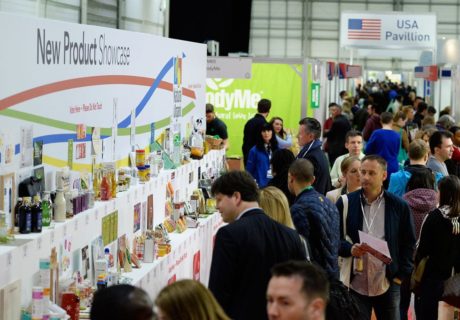Soil Association Certification is teaming up with the Carbon Trust to develop a bespoke sustainable catering standard to complement the Food for Life Catering Mark.
The new standard will look at waste, energy and water, in addition to food provenance and supply chain, which are already covered by the existing Catering Mark award.
To be launched as a pilot, it will enable businesses to be recognized for exemplary practice in environmental sustainability and help them reach ‘Good’ or higher on DEFRA’s Balanced Scorecard.
This will be the first scheme to provide ‘one-stop shop’ verification that aligns across all areas of DEFRA’s Balanced Scorecard.
“This partnership between Soil Association Certification and the Carbon Trust is an exciting opportunity to inspire businesses and caterers to improve their environmental performance and show a clear commitment to buying fresh, healthy, locally sourced, sustainable food and champion British producers via the Red Tractor scheme,” commented Dr Peter Bonfield, who originally developed the Balanced Scorecard. “The Food for Life Catering Mark is making it easy to verify a good or excellent score across all areas of the DEFRA balanced scorecard for public procurement, including food production, social and economic value, quality and now resource efficiency too.”
Martin Sawyer, chief executive of Soil Association Certification, added: “We’re close to reaching a remarkable two million Catering Mark meals served daily in the UK – wouldn’t it be great if those meals could also be provided with the justifiable claim they are using less energy, are more efficient and have less impact on our environment. I’m sure that many businesses will be interested in our pilot project, and in turn can see the benefit, both socially and economically, of this partnership.”
“Over eight billion meals a year are served by caterers in the UK across 260,000 sites,” said Darran Messem, MD of Certification at the Carbon Trust. “Even small improvements in the environmental impact of each meal served can add up to a huge total. Fortunately in many cases large improvements are possible. For example Carbon Trust analysis suggests that many caterers could achieve reductions of around 30% in energy costs, equivalent to an annual saving of £250 million. Catering as a sector has the opportunity and the capability to drive significant positive change in the health and sustainability of our diets.”
As well as helping caterers meet procurement requirements, the scheme can help with companies’ CSR requirements, improve efficiency in energy and water saving, enhance the company’s reputation and provide a comprehensive assurance of quality and integrity of catering operations.
To register interest in this scheme contact: [email protected].




